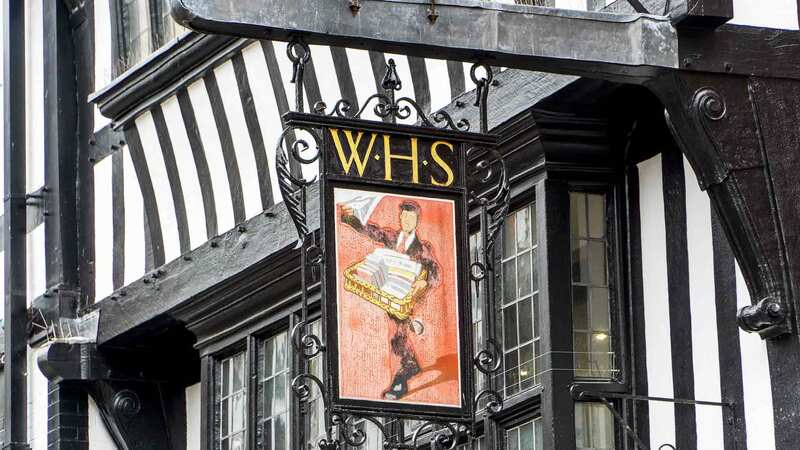You are viewing your 1 free article this month. Login to read more articles.
Is Super Thursday still super?
Does publishing’s biggest day simply help the same few titles to rise to the top?
Whew, the whirlwind that is Super Thursday has been and gone again for another year. Unpacked boxes lie empty, bookshop shelves are crammed with a plethora of new releases, your local postie is struggling under the delivery weight of all the tomes bought online and booksellers are grabbing any chance they can to put their aching feet up for five minutes after working at double speed.
Super Thursday, a title bestowed by this very publication back in 2008 to the day in October, when a gargantuan number of books are published to take advantage of the festive gifting season, is now a huge publishing event. This year nearly 1,900 titles, including 457 hardbacks, were released to the world in just one day. But, has Super Thursday grown too big for its boots, like a red giant star that’s set to collapse in on itself?
The run up to Christmas is certainly a lucrative time in publishing, with books retaining their status as a popular gift. The season can make or break a title/author whose publisher is betting on becoming a bestseller. Yet with so many books vying for attention, some may fall through the cracks. If they were published at any other time of the year then lower sales may not be so much of an issue, but if a book has bagged a Super Thursday publishing date and doesn’t perform, then it’s considered a flop—a highly disconcerting proclamation for the author.
Whether a book finds its readership or not is always a gamble, but marketing certainly helps its chances. With resources concentrated on pushing a select few books—last year seven titles sold more than £1million each—not every book can have its fair slice of the pie. A quick browse of Amazon and my local WHSmith showed that heavy discounting is concentrated on selling a small number of Super Thursday titles. That’s something that indie bookshops can’t compete with, rendering the market more uneven.
Indie bookstores’ key to success during this period is tailoring their stock to their clientele. Charlotte Vaughan from Kenilworth Books states about Super Thursday: "It’s often a bit of a mad week for us as an indie bookshop as there are so many books to choose to order and also for people to choose to buy as there is so much choice! We honestly just have to go for what we know our customers will like and what they will request." This year the staff are "most excited" about Kate Mosse’s The Map of Bones and Jodi Picoult’s By Any Other Name, with Vaughan adding, "We do think Rick Astley’s book Never will be a popular Christmas gift and Unleashed by Boris Johnson is set to sell fast too."
Discounting is concentrated on selling a small number of Super Thursday titles. That’s something that indie bookshops can’t compete with, rendering the market more uneven.
Kirstie Lount from online indie bookstore Fox Lane Books, who likes to champion lesser-known titles, is "not bothering so much with the big-name Super Thursday releases because Waterstones, Amazon, WHS and the supermarkets will sell them for half price, and you just can’t compete with that." She adds that Super Thursday is more advantageous for big companies, but "it’s a little different if you manage to get signed copies, as they will sell".
At indie bookshop Warwick Books, owners Mog and Pauline Harris say: "We are interested in diversity and try to show this through our bookshelves by stocking books from smaller presses on a range of subjects." For them, Super Thursday "makes for a busy time and our customers respond well to the offerings so as a business it’s not a negative experience, it’s a boost".
One mid-list author I spoke to, however, has contrary views about Super Thursday: "As a reader I look forward to it but as a mid-list author it’s not great. Publishers release their big-name titles on Super Thursday and therefore there’s no incentive for people to buy lesser-known authors’ books in the festive period. I would like publishers to put more effort into marketing smaller authors during the Christmas gift buying season."
Kirstie Lount says that publishing a book after Christmas means there’s more space on the shelves, but agrees that "publisher reps need to communicate with indies to alert them to new releases by lesser-known authors and also offer a fair deal with trade discount so they can support them". Not being published on Super Thursday, she thinks, can be beneficial for a mid-list author because there is less competition.
Super Thursday may inspire mixed feelings amongst authors and booksellers, but with recent statistics stating that only half of UK adults read for pleasure, any event that encourages reading and footfall in bookshops can only be welcome. If care can be taken to try to give every book a chance to shine, all the better.


















